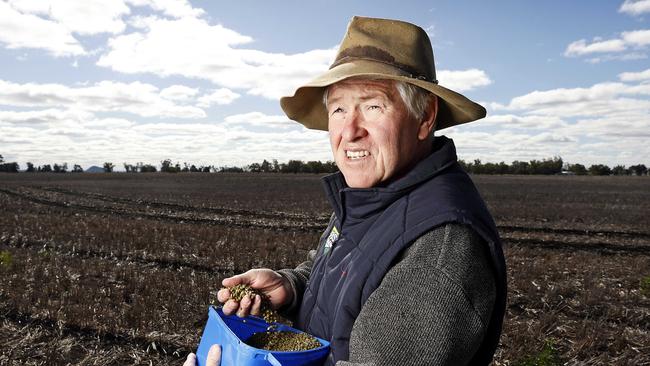Agriculture ‘wants signed promise it won’t be worse off’ under methane reduction pledge
The head of NSW Farmers wants a signed guarantee from Anthony Albanese that the decision to sign up to the methane reduction pledge will not negatively affect the livestock industry.

The head of the NSW farming organisation wants a signed guarantee from Anthony Albanese that the decision to sign up to US President Joe Biden’s methane reduction pledge will not negatively affect the livestock industry.
Climate Change Minister Chris Bowen, who announced on Sunday the government would join more than 120 other countries in vowing to reduce methane emissions by 30 per cent in the next decade, has promised the pledge will be non-binding and will not result in taxes or regulation of methane emissions.
The move has been generally welcomed by the red meat industry, which has its own target to be carbon neutral by 2030 and is partnering with researchers to develop solutions to reduce methane.
Yet some farmers, unnerved by New Zealand Prime Minister Jacinda Ardern’s decision this month to introduce a “burp tax” from 2025, have called for a more iron-clad assurance from the Albanese government.
NSW Farmers president Xavier Martin said to allay concerns, the Prime Minister should sign a written promise that farmers would not be left worse off by the commitment.
“Words are just words,” he said. “Otherwise words would be good enough for Joe Biden.
“At the moment we’re looking across the ditch to New Zealand and seeing words meant nothing there. That’s an absolute warning to Australian farmers to not trust politicians, to get it in writing.”
His counterpart in Queensland, AgForce chief executive Michael Guerin, warned of protests, similar to those in New Zealand and The Netherlands, if the government abandoned its promises to the industry.
“We do not want to see farmers protesting in the streets because they were not adequately consulted prior to the creation of regulations that challenge their existence.”
Red Meat Advisory Council chairman John McKillop said the industry had reduced its net emissions by almost 60 per cent since 2005 through carbon storage in vegetation and increased efficiency.
Remaining reductions, he said, would come through the commercialisation of methane-reducing feed additives.
West Australian Agriculture Minister Alannah MacTiernan went a step further, telling farmers at a recent conference the cattle industry could reduce the nation’s overall methane emissions through innovations such as tannin-rich feed.
She said much of the debate about emissions either missed or glossed over the critical difference between a fossil fuel greenhouse gas and the methane that was part of the “biogenic cycle” when cattle were raised on pasture.



To join the conversation, please log in. Don't have an account? Register
Join the conversation, you are commenting as Logout